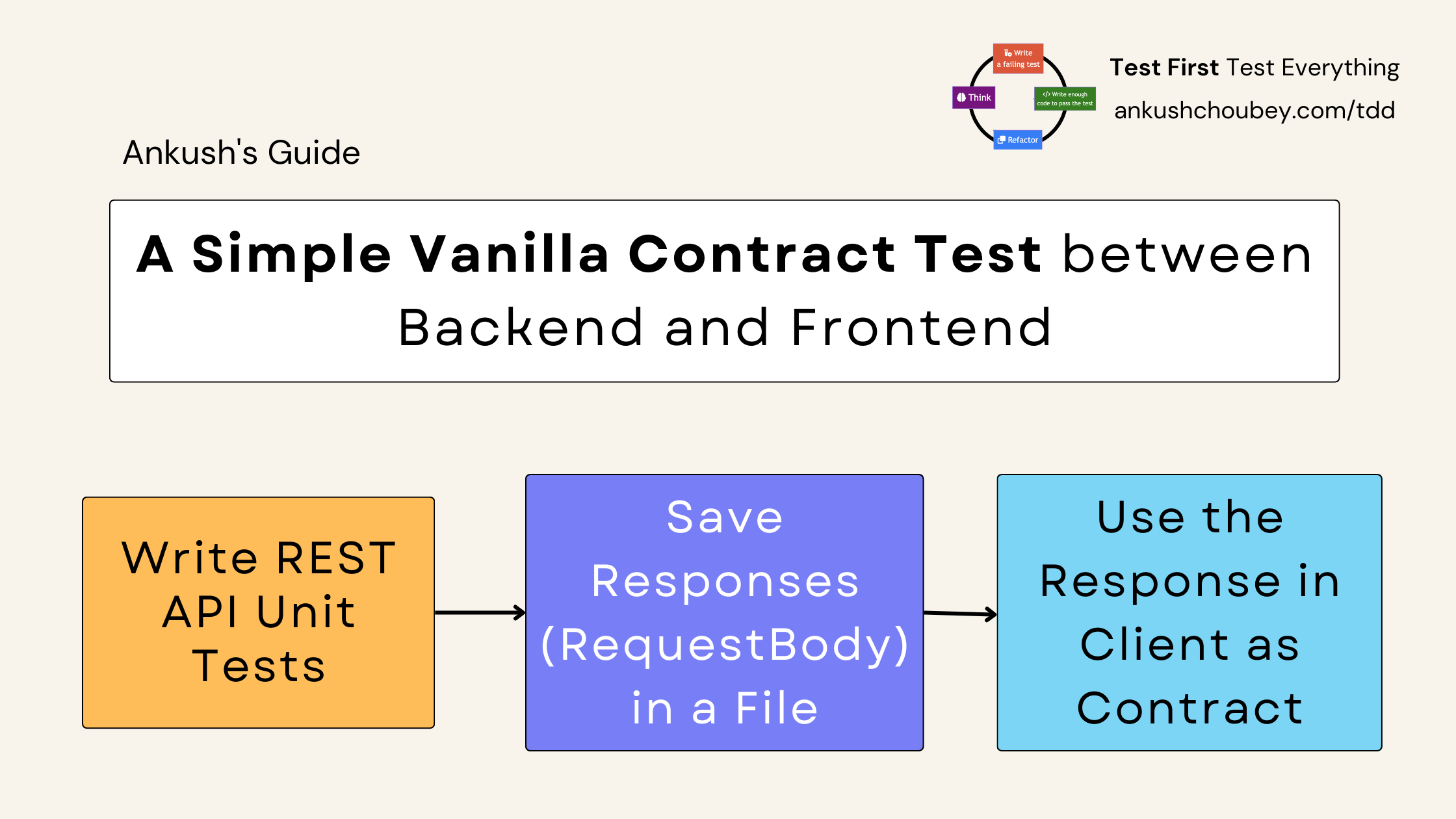· 3 min read
A Simple Vanilla Contract Test between Backend and Frontend
Response during unit tests can be saved in files which can be used for Testing UI.

What is Contract Testing?
Contract Testing allows for establishing a “contract” between two distributed systems. This can be between a backend and a frontend or between two services.
The main aim of a contract test is to establish the format between the client and the server! If the structure of the API response changes, the unit tests on the client side are broken until the code is updated.
This way, the server and its clients’ format are in sync.
There are two parts to a contract test:
- Server: This creates the contract. This contract can be shared with a client.
- Client: This consumes the contract and runs its unit tests against it.
How can one achieve a simple contract?
There are many tools available for contract testing:
- Spring Cloud Contract: Mostly used in Spring Boot Environment. It does support other languages, but it’s more challenging than spring.
- Pact: Can be used with different programming languages more easily.
I have tried Spring Cloud Contract, but it can be a hassle. Here’s a simpler version: I have developed a #vanilla approach.
When we write Unit tests for our API, save those responses in a file. Use these responses in your client.
For me, the client was a React Application. Here, we kept a Mock JSON that represents how the response from the server will be. We would create this JSON manually.
Instead of manually creating and maintaining the JSON, we can use the same backend contract saved as a file in this JSON.
Here’s the code snippet for Spring Boot.
public void exportRestResponse(String resource, HttpMethod httpMethod, HttpStatus httpStatus, String url, WebTestClient.Response responseSpec){
String data = responseSpec.expectBody(String.class).getEntityResponse().getBody();
... you can also beautify this JSON string.
String name = httpMethod + " " + httpStatus + " " + url.replaceAll("\\", "-");
... we can't save \ as the file name. So replaced \ with -
Path path = new Path("/contracts/"+resource+"/" + name + ".json");
FileUtils.save(path, data);
}I would then use it within the tests.
// when:
WebTestClient.ResponseSpec responseSpec = webTestClient.get("/movies");
// then:
responseSpec.expectStatus().isOk().expectBody(List.class);
... assert all other errors
// save contract:
exportRestResponse("movies", HttpMethod.GET, HTTPStatus.OK, "/movies", responseSpec);This would export a file.
/contracts/movies/GET 200 -movies.jsonI wanted it easy to file a contract, so this is in the file name syntax I adopted
/contracts/{resource}/{httpMethod} {httpStatus} {url}.jsonThis way, I created a simple contract between the back and front end. These contracts can be copied to the frontend whenever the tests run, and frontend tests can run too.
One can create a simple CI pipeline to automate this further. Something like the following:
- Whenever the backend code get’s committed, a CI job runs all the unit tests.
- These unit tests create new json contracts.
- These JSON contracts get copied to the frontend.
Conclusion
One need not use a complex library to achieve contract testing between a frontend and a backend. If a good testing process if followed on the backend and frontend tests run over Mocked responses, the backend REST API test responses can be saved to a file and these can serve the basis for frontend tests. Thus, establishing a simple contract.